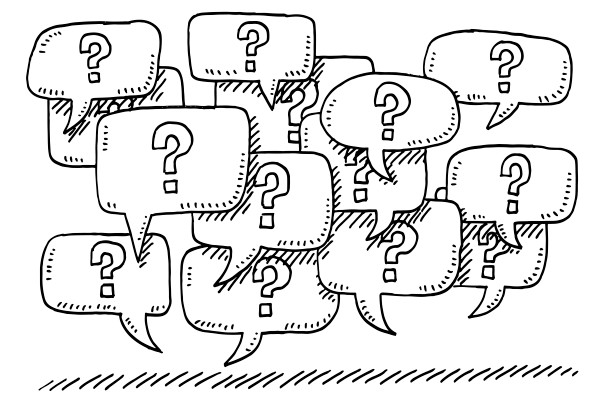The new app is called watchGPT and as I tipped off already, it gives you access to ChatGPT from your Apple Watch. Now the $10,000 question (or more accurately the $3.99 question, as that is the one-time cost of the app) is why having ChatGPT on your wrist is remotely necessary, so let’s dive into what exactly the app can do.
NEWS
Europe’s top court sets new line on policing illegal speech online

Europe’s top court has set a new line for the policing of illegal speech online. The ruling has implications for how speech is regulated on online platforms — and is likely to feed into wider planned reform of regional rules governing platforms’ liabilities.
Per the CJEU decision, platforms such as Facebook can be instructed to hunt for and remove illegal speech worldwide — including speech that’s “equivalent” to content already judged illegal.
Although any such takedowns remain within the framework of “relevant international law”.
So in practice it does not that mean a court order issued in one EU country will get universally applied in all jurisdictions as there’s no international agreement on what constitutes unlawful speech or even more narrowly defamatory speech.
Existing EU rules on the free flow of information on ecommerce platforms — aka the eCommerce Directive — which state that Member States cannot force a “general content monitoring obligation” on intermediaries, do not preclude courts from ordering platforms to remove or block illegal speech, the court has decided.
That decision worries free speech advocates who are concerned it could open the door to general monitoring obligations being placed on tech platforms in the region, with the risk of a chilling effect on freedom of expression.
Facebook has also expressed concern. Responding to the ruling in a statement, a spokesperson told us:
“This judgement raises critical questions around freedom of expression and the role that internet companies should play in monitoring, interpreting and removing speech that might be illegal in any particular country. At Facebook, we already have Community Standards which outline what people can and cannot share on our platform, and we have a process in place to restrict content if and when it violates local laws. This ruling goes much further. It undermines the long-standing principle that one country does not have the right to impose its laws on speech on another country. It also opens the door to obligations being imposed on internet companies to proactively monitor content and then interpret if it is “equivalent” to content that has been found to be illegal. In order to get this right national courts will have to set out very clear definitions on what ”identical” and ”equivalent” means in practice. We hope the courts take a proportionate and measured approach, to avoid having a chilling effect on freedom of expression.”
The legal questions were referred to the CJEU by a court in Austria, and stem from a defamation action brought by Austrian Green Party politician, Eva Glawischnig, who in 2016 filed suit against Facebook after the company refused to take down posts she claimed were defamatory against her.
In 2017 an Austrian court ruled Facebook should take the defamatory posts down and do so worldwide. However Glawischnig also wanted it to remove similar posts, not just identical reposts of the illegal speech, which she argued were equally defamatory.
The current situation where platforms require notice of illegal content before carrying out a takedown are problematic, from one perspective, given the scale and speed of content distribution on digital platforms — which can make it impossible to keep up with reporting re-postings.
Facebook’s platform also has closed groups where content can be shared out of sight of non-members, and where an individual could therefore have no ability to see unlawful content that’s targeted at them — making it essentially impossible for them to report it.
While the case concerns the scope of the application of defamation law on Facebook’s platform the ruling clearly has broader implications for regulating a range of “unlawful” content online.
Specifically the CJEU has ruled that an information society service “host provider” can be ordered to:
- … remove information which it stores, the content of which is identical to the content of information which was previously declared to be unlawful, or to block access to that information, irrespective of who requested the storage of that information;
- … remove information which it stores, the content of which is equivalent to the content of information which was previously declared to be unlawful, or to block access to that information, provided that the monitoring of and search for the information concerned by such an injunction are limited to information conveying a message the content of which remains essentially unchanged compared with the content which gave rise to the finding of illegality and containing the elements specified in the injunction, and provided that the differences in the wording of that equivalent content, compared with the wording characterising the information which was previously declared to be illegal, are not such as to require the host provider to carry out an independent assessment of that content;
- … remove information covered by the injunction or to block access to that information worldwide within the framework of the relevant international law
The court has sought to balance the requirement under EU law of no general monitoring obligation on platforms with the ability of national courts to regulate information flow online in specific instances of illegal speech.
In the judgement the CJEU also invokes the idea of Member States being able to “apply duties of care, which can reasonably be expected from them and which are specified by national law, in order to detect and prevent certain types of illegal activities” — saying the eCommerce Direction does not stand in the way of states imposing such a requirement.
Some European countries are showing appetite for tighter regulation of online platforms. In the UK, for instance, the government laid out proposals for regulating a board range of online harms earlier this year. While, two years ago, Germany introduced a law to regulate hate speech takedowns on online platforms.
Over the past several years the European Commission has also kept up pressure on platforms to speed up takedowns of illegal content — signing tech companies up to a voluntary code of practice, back in 2016, and continuing to warn it could introduce legislation if targets are not met.
Today’s ruling is thus being interpreted in some quarters as opening the door to a wider reform of EU platform liability law by the incoming Commission — which could allow for imposing more general monitoring or content-filtering obligations, aligned with Member States’ security or safety priorities.
“We can trace worrying content blocking tendencies in Europe,” says Sebastian Felix Schwemer, a researcher in algorithmic content regulation and intermediary liability at the University of Copenhagen. “The legislator has earlier this year introduced proactive content filtering by platforms in the Copyright DSM Directive (“uploadfilters”) and similarly suggested in a Proposal for a Regulation on Terrorist Content as well as in a non-binding Recommendation from March last year.”
Critics of a controversial copyright reform — which was agreed by European legislators earlier this year — have warned consistently that it will result in tech platforms pre-filtering user generated content uploads. Although the full impact remains to be seen, as Member States have two years from April 2019 to pass legislation meeting the Directive’s requirements.
In 2018 the Commission also introduced a proposal for a regulation on preventing the dissemination of terrorist content online — which explicitly included a requirement for platforms to use filters to identify and block re-uploads of illegal terrorist content. Though the filter element was challenged in the EU parliament.
“There is little case law on the question of general monitoring (prohibited according to Article 15 of the E-Commerce Directive), but the question is highly topical,” says Schwemer. “Both towards the trend towards proactive content filtering by platforms and the legislator’s push for these measures (Article 17 in the Copyright DSM Directive, Terrorist Content Proposal, the Commission’s non-binding Recommendation from last year).”
Schwemer agrees the CJEU ruling will have “a broad impact” on the behavior of online platforms — going beyond Facebook and the application of defamation law.
“The incoming Commission is likely to open up the E-Commerce Directive (there is a leaked concept note by DG Connect from before the summer),” he suggests. “Something that has previously been perceived as opening Pandora’s Box. The decision will also play into the coming lawmaking process.”
The ruling also naturally raises the question of what constitutes “equivalent” unlawful content? And who and how will they be the judge of that?
The CJEU goes into some detail on “specific elements” it says are needed for non-identical illegal speech to be judged equivalently unlawful, and also on the limits of the burden that should be placed on platforms so they are not under a general obligation to monitor content — ultimately implying that technology filters, not human assessments, should be used to identify equivalent speech.
From the judgement:
… it is important that the equivalent information referred to in paragraph 41 above contains specific elements which are properly identified in the injunction, such as the name of the person concerned by the infringement determined previously, the circumstances in which that infringement was determined and equivalent content to that which was declared to be illegal. Differences in the wording of that equivalent content, compared with the content which was declared to be illegal, must not, in any event, be such as to require the host provider concerned to carry out an independent assessment of that content.
In those circumstances, an obligation such as the one described in paragraphs 41 and 45 above, on the one hand — in so far as it also extends to information with equivalent content — appears to be sufficiently effective for ensuring that the person targeted by the defamatory statements is protected. On the other hand, that protection is not provided by means of an excessive obligation being imposed on the host provider, in so far as the monitoring of and search for information which it requires are limited to information containing the elements specified in the injunction, and its defamatory content of an equivalent nature does not require the host provider to carry out an independent assessment, since the latter has recourse to automated search tools and technologies.
“The Court’s thoughts on the filtering of ‘equivalent’ information are interesting,” Schwemer continues. “It boils down to that platforms can be ordered to track down illegal content, but only under specific circumstances.
“In its rather short judgement, the Court comes to the conclusion… that it is no general monitoring obligation on hosting providers to remove or block equivalent content. That is provided that the search of information is limited to essentially unchanged content and that the hosting provider does not have to carry out an independent assessment but can rely on automated technologies to detect that content.”
While he says the court’s intentions — to “limit defamation” — are “good” he points out that “relying on filtering technologies is far from unproblematic”.
Filters can indeed be an extremely blunt tool. Even basic text filters can be triggered by words that contain a prohibited spelling. While applying filters to block defamatory speech could lead to — for example — inadvertently blocking lawful reactions that quote the unlawful speech.
The ruling also means platforms and/or their technology tools are being compelled to define the limits of free expression under threat of liability. Which pushes them towards setting a more conservative line on what’s acceptable expression on their platforms — in order to shrink their legal risk.
Although definitions of what is unlawful speech and equivalently unlawful will ultimately rest with courts.
It’s worth pointing out that platforms are already defining speech limits — just driven by their own economic incentives.
For ad supported platforms, these incentives typically demand maximizing engagement and time spent on the platform — which tends to encourage users to spread provocative/outrageous content.
That can sum to clickbait and junk news. Equally it can mean the most hateful stuff under the sun.
Without a new online business model paradigm that radically shifts the economic incentives around content creation on platforms the tension between freedom of expression and illegal hate speech will remain. As will the general content monitoring obligation such platforms place on society.
Facebook Faces Yet Another Outage: Platform Encounters Technical Issues Again

Uppdated: It seems that today’s issues with Facebook haven’t affected as many users as the last time. A smaller group of people appears to be impacted this time around, which is a relief compared to the larger incident before. Nevertheless, it’s still frustrating for those affected, and hopefully, the issues will be resolved soon by the Facebook team.
Facebook had another problem today (March 20, 2024). According to Downdetector, a website that shows when other websites are not working, many people had trouble using Facebook.
This isn’t the first time Facebook has had issues. Just a little while ago, there was another problem that stopped people from using the site. Today, when people tried to use Facebook, it didn’t work like it should. People couldn’t see their friends’ posts, and sometimes the website wouldn’t even load.
Downdetector, which watches out for problems on websites, showed that lots of people were having trouble with Facebook. People from all over the world said they couldn’t use the site, and they were not happy about it.
When websites like Facebook have problems, it affects a lot of people. It’s not just about not being able to see posts or chat with friends. It can also impact businesses that use Facebook to reach customers.
Since Facebook owns Messenger and Instagram, the problems with Facebook also meant that people had trouble using these apps. It made the situation even more frustrating for many users, who rely on these apps to stay connected with others.
During this recent problem, one thing is obvious: the internet is always changing, and even big websites like Facebook can have problems. While people wait for Facebook to fix the issue, it shows us how easily things online can go wrong. It’s a good reminder that we should have backup plans for staying connected online, just in case something like this happens again.
NEWS
We asked ChatGPT what will be Google (GOOG) stock price for 2030

Investors who have invested in Alphabet Inc. (NASDAQ: GOOG) stock have reaped significant benefits from the company’s robust financial performance over the last five years. Google’s dominance in the online advertising market has been a key driver of the company’s consistent revenue growth and impressive profit margins.
In addition, Google has expanded its operations into related fields such as cloud computing and artificial intelligence. These areas show great promise as future growth drivers, making them increasingly attractive to investors. Notably, Alphabet’s stock price has been rising due to investor interest in the company’s recent initiatives in the fast-developing field of artificial intelligence (AI), adding generative AI features to Gmail and Google Docs.
However, when it comes to predicting the future pricing of a corporation like Google, there are many factors to consider. With this in mind, Finbold turned to the artificial intelligence tool ChatGPT to suggest a likely pricing range for GOOG stock by 2030. Although the tool was unable to give a definitive price range, it did note the following:
“Over the long term, Google has a track record of strong financial performance and has shown an ability to adapt to changing market conditions. As such, it’s reasonable to expect that Google’s stock price may continue to appreciate over time.”
GOOG stock price prediction
While attempting to estimate the price range of future transactions, it is essential to consider a variety of measures in addition to the AI chat tool, which includes deep learning algorithms and stock market experts.
Finbold collected forecasts provided by CoinPriceForecast, a finance prediction tool that utilizes machine self-learning technology, to anticipate Google stock price by the end of 2030 to compare with ChatGPT’s projection.
According to the most recent long-term estimate, which Finbold obtained on March 20, the price of Google will rise beyond $200 in 2030 and touch $247 by the end of the year, which would indicate a 141% gain from today to the end of the year.
Google has been assigned a recommendation of ‘strong buy’ by the majority of analysts working on Wall Street for a more near-term time frame. Significantly, 36 analysts of the 48 have recommended a “strong buy,” while seven people have advocated a “buy.” The remaining five analysts had given a ‘hold’ rating.

The average price projection for Alphabet stock over the last three months has been $125.32; this objective represents a 22.31% upside from its current price. It’s interesting to note that the maximum price forecast for the next year is $160, representing a gain of 56.16% from the stock’s current price of $102.46.
While the outlook for Google stock may be positive, it’s important to keep in mind that some potential challenges and risks could impact its performance, including competition from ChatGPT itself, which could affect Google’s price.
Disclaimer: The content on this site should not be considered investment advice. Investing is speculative. When investing, your capital is at risk.
NEWS
This Apple Watch app brings ChatGPT to your wrist — here’s why you want it

ChatGPT feels like it is everywhere at the moment; the AI-powered tool is rapidly starting to feel like internet connected home devices where you are left wondering if your flower pot really needed Bluetooth. However, after hearing about a new Apple Watch app that brings ChatGPT to your favorite wrist computer, I’m actually convinced this one is worth checking out.
-

 PPC5 days ago
PPC5 days agoHow the TikTok Algorithm Works in 2024 (+9 Ways to Go Viral)
-

 SEO6 days ago
SEO6 days agoBlog Post Checklist: Check All Prior to Hitting “Publish”
-

 SEO4 days ago
SEO4 days agoHow to Use Keywords for SEO: The Complete Beginner’s Guide
-

 MARKETING5 days ago
MARKETING5 days agoHow To Protect Your People and Brand
-

 PPC6 days ago
PPC6 days agoHow to Craft Compelling Google Ads for eCommerce
-

 SEARCHENGINES6 days ago
SEARCHENGINES6 days agoGoogle Started Enforcing The Site Reputation Abuse Policy
-

 MARKETING4 days ago
MARKETING4 days agoThe Ultimate Guide to Email Marketing
-

 MARKETING6 days ago
MARKETING6 days agoElevating Women in SEO for a More Inclusive Industry









